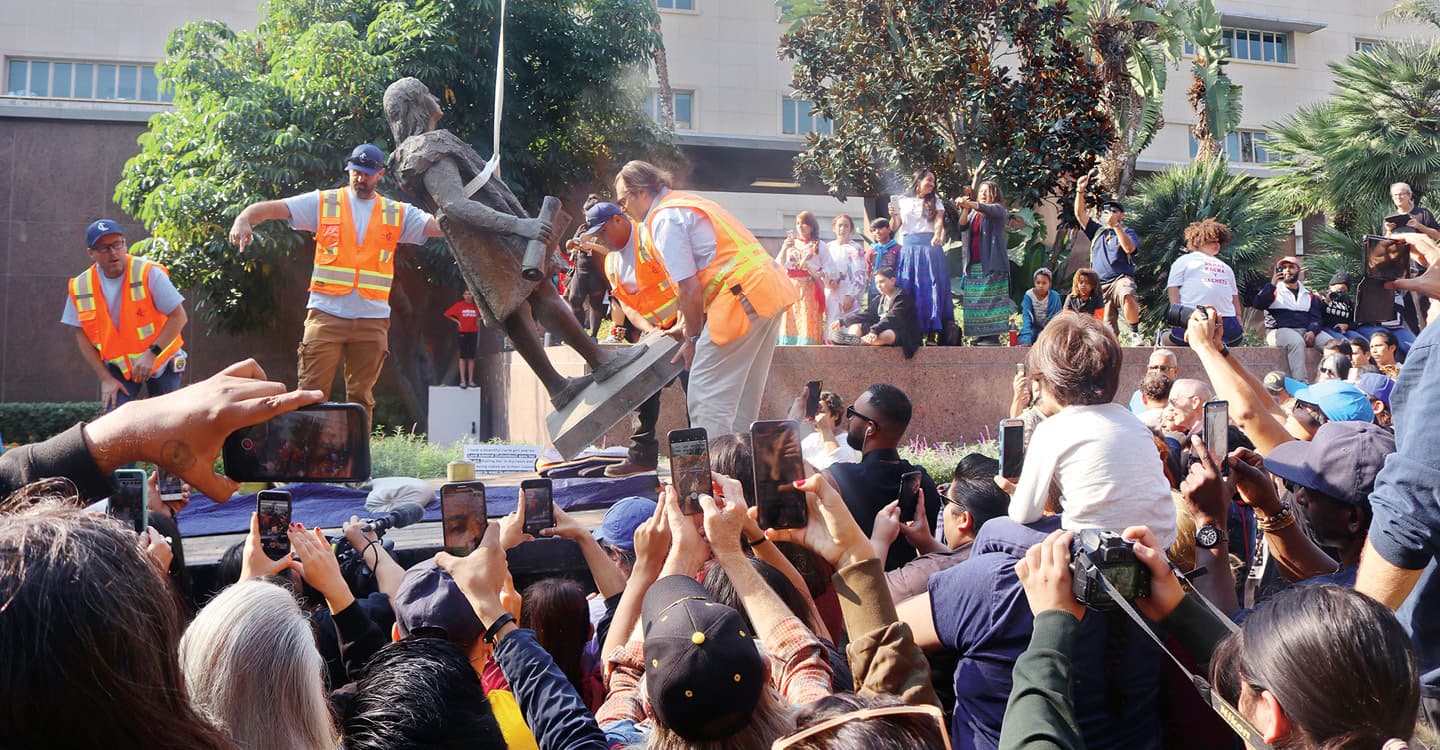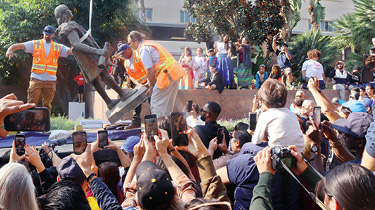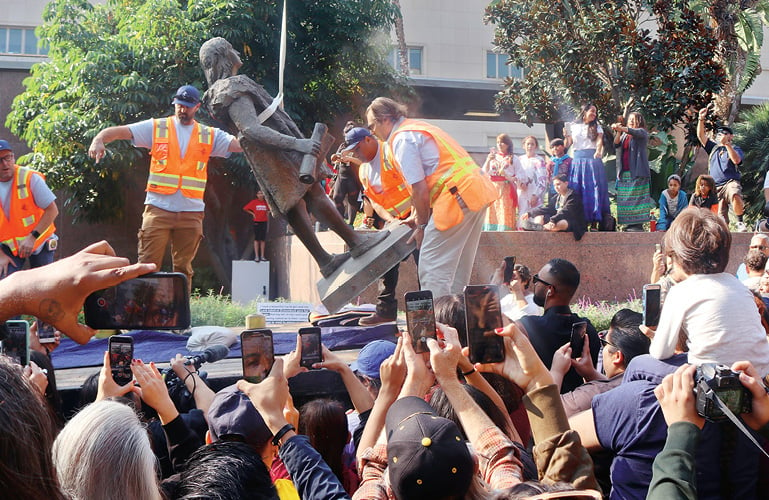Everett Historical/Shutterstock.com (Columbus)
The statue of Christopher Columbus had stood on its pedestal in downtown Los Angeles for 45 years. Then, on October 12, 2018, it was fenced off and wrapped in plastic during the inaugural celebration of Indigenous Peoples’ Day, which the city had adopted to replace Columbus Day. A month later, before a cheering crowd, city workers permanently removed the famed Italian explorer from his perch.
Other monuments honoring Columbus have met a similar fate. In March of that year, a Columbus statue was removed from the lobby of city hall in San Jose, California. And on Columbus Day in 2018, a sculpture in Marconi Park in Philadelphia was defaced with graffiti that read “genocide” and “stolen land.”
As these episodes and others reflect, Columbus’s reputation is under attack in the United States. While many people still hail him as the man whose sea voyages paved the way for sustained contact between Europe and the Americas, his critics view him as a ruthless conqueror who set in motion the decimation of native populations in the region. Some states and cities are moving to replace Columbus Day celebrations with Indigenous Peoples’ Day. In some cases, they are removing statues that have long honored Columbus.
“It was the height of disrespect and offense to have the statue remain in the park,” says Los Angeles councilman Mitch O’Farrell, a member of the Wyandotte Nation who had pushed to replace Columbus Day with Indigenous Peoples’ Day.
Columbus never set foot in what would become the U.S., but on October 12, 1492, his three ships landed on the coast of one of the Caribbean islands that today make up the Bahamas, and he claimed the land for the Spanish crown, which had financed his expedition. He’s often been erroneously credited as the first European to have reached the Americas, although the Vikings, who left Greenland to establish temporary colonies in modern-day Canada, predated him by nearly five centuries. When Columbus arrived, millions of indigenous people that he would call Indians—mistakenly thinking he’d reached the East Indies in Asia—had already been living in North, South, and Central America for tens of thousands of years.
The statue of Christopher Columbus had stood in downtown Los Angeles for 45 years. Then, on October 12, 2018, it was fenced off and wrapped in plastic. The date marked the inaugural celebration of Indigenous Peoples’ Day. The city had adopted the holiday to replace Columbus Day. A month later, city workers permanently removed the famed Italian explorer from his post. A crowd cheered them on during the process.
Other monuments honoring Columbus have met a similar fate. In March of that year, a Columbus statue was removed from the lobby of city hall in San Jose, California. And on Columbus Day in 2018, a sculpture in Marconi Park in Philadelphia was defaced. The graffiti that covered it read “genocide” and “stolen land.”
Columbus’s reputation is under attack in the United States. These episodes and others reflect that fact. Many people still hail Columbus as the man whose sea voyages paved the way for sustained contact between Europe and the Americas. But he also has many critics. They view him as a ruthless conqueror who set in motion the decimation of native populations in the region. Some states and cities are moving to replace Columbus Day celebrations with Indigenous Peoples’ Day. In some cases, they are removing statues that have long honored Columbus.
“It was the height of disrespect and offense to have the statue remain in the park,” says Los Angeles councilman Mitch O’Farrell, a member of the Wyandotte Nation who had pushed to replace Columbus Day with Indigenous Peoples’ Day.
Columbus never set foot in what would become the U.S. On October 12, 1492, his three ships landed on the coast of one of the Caribbean islands that today make up the Bahamas. He then claimed the land for the Spanish crown, which had financed his expedition. He’s often been credited as the first European to have reached the Americas. That’s not correct. The Vikings, who left Greenland to establish temporary colonies in modern-day Canada, predated him by nearly five centuries. When Columbus arrived, he encountered indigenous people. He would go on to call them Indians, mistakenly thinking he’d reached the East Indies in Asia. There were millions of indigenous people living in the Americas at the time. They had been living in North, South, and Central America for tens of thousands of years.



